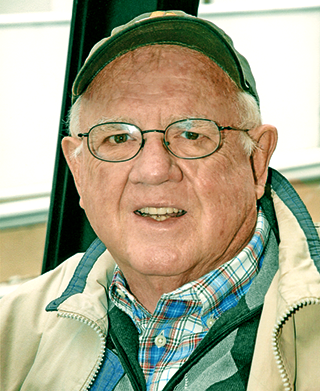BACK IN THE EARLY 1970s, my first look at Monsanto’s glyphosate herbicide was in no-till plots we’d put out in Hawaii for No-Till Farmer tours to the islands. While no-tillers were extremely impressed with the weed control, what I remember most was that they saw the new herbicide chemistry as an option to use of a Gramoxone burndown (then called Paraquat). Plus, they were hoping this would be a cheaper way of controlling weeds, although we all know that never happened.
Now, more than 30 years later, glyphosate and resulting biotech seed developments have much more than just a toehold in the no-till market. Besides several major ag chemical suppliers, other companies have numerous glyphosate generics on the market and most seed companies offer glyphosate-resistant lines.
New Glyphosate Option.
By 2009, no-till soybean growers will be able to take full advantage of a new type of glyphosate-tolerant soybean seed. The Optimum GAT (glyphosate ALS tolerant) trait is a proprietary herbicide-tolerance trait that DuPont also plans to commercialize in corn, cotton and other crops. This new development is from DuPont, a company that you haven’t heard much about in recent years in regards to either herbicide chemistry or biotech development.
This new trait offers a stacked combination of ALS and glyphosate tolerance that will give you more options for dealing with both tough-to-control and glyphosate-resistant weeds. What makes the trait different is a unique glyphosate-tolerant mechanism that binds with glyphosate and transforms it into a metabolite structure that does not harm the plant. By comparison, other glyphosate-tolerant products rely on changes in the molecular structure of specific enzymes within the plant to keep glyphosate from binding or harming the plant.
In late November, DuPont completed its regulatory submission for approval of the new trait in soybeans with the Environmental Protection Agency and the Food and Drug Administration. “This is a significant step,” says Erik Fyrwald, DuPont group vice president for agriculture and nutrition. “These regulatory submissions keep us on track for commercialization of products starting in 2009 and allow us to meet farmer demand for better performing products with new weed control options.”
Gene Shuffling Technology.
The trait is the first product developed with gene shuffling, a high-tech tool will help seed companies identify and develop next-generation traits to help plants perform better against drought, insects, weeds and diseases.
“By 2009, soybean varieties with the trait will be marketed by Pioneer Hi-Bred International, which is owned by DuPont. The trait has also been licensed to Syngenta Crop Protection for corn and soybeans and to Delta Pine & Land Co. for cotton. It will also be cross-licensed through GreenLeaf genetics, a joint venture between Syngenta Seeds and Pioneer that will make the technology available to other U.S. and Canadian seed companies.
With this new glyphosate- and ALS-tolerant trait, you’ll have new glyphosate options for critical weed control. It’s also my guess that both herbicide and seed companies will be thrilled to not have to deal strictly with Monsanto for the use of glyphosate-tolerant traits.







Post a comment
Report Abusive Comment